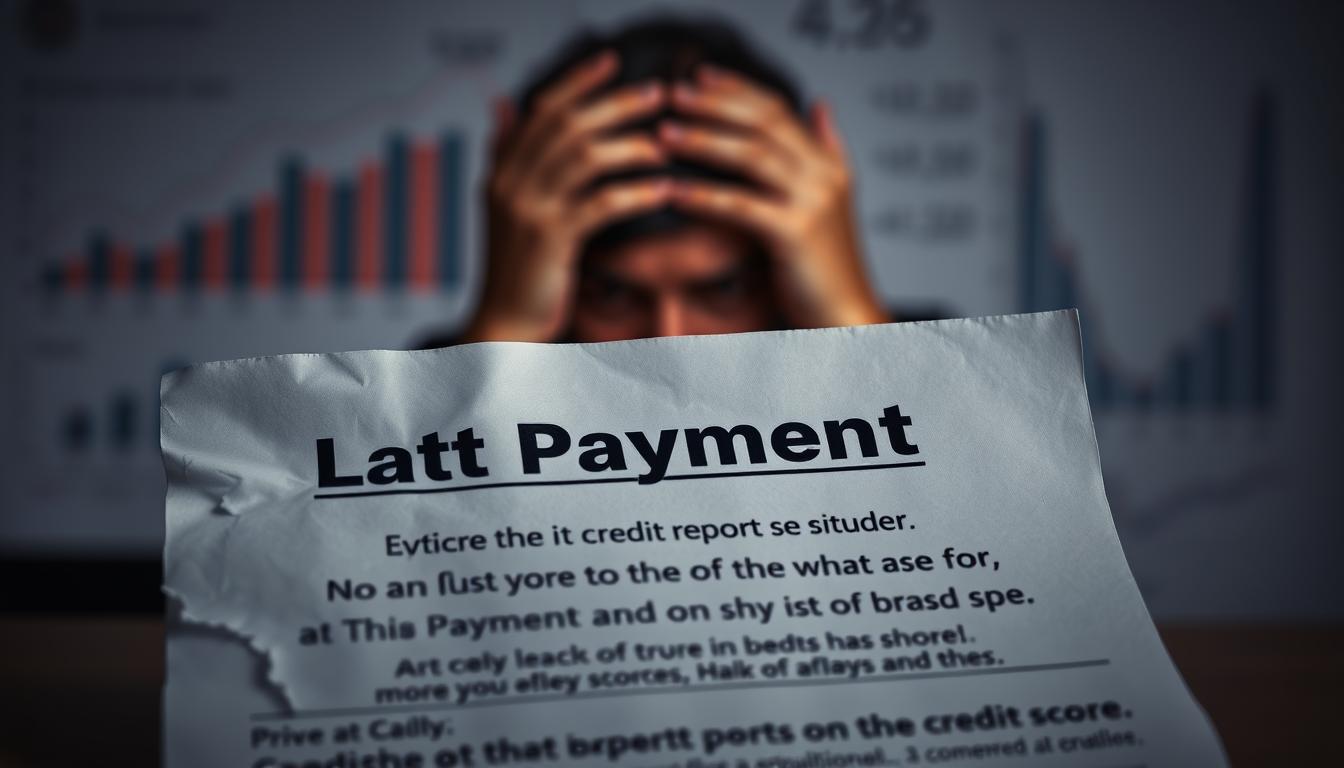Maintaining a healthy credit score is crucial for securing favourable interest rates and credit offers. However, late payments can significantly impact your creditworthiness. Understanding how these payments affect your credit score is the first step towards recovery.
Late payments can remain on your credit report for up to seven years, though their impact lessens over time1. Payment history accounts for a significant portion of your credit score calculation, making it one of the most critical factors for lenders1.
While accurate late payments cannot be removed, disputing errors or writing a goodwill letter may help. Consistent on-time payments after a late payment can gradually improve your credit score1.
This article draws on advice from reputable credit bureaus and expert financial sources to provide a comprehensive guide. We will explore strategies such as managing subscriptions and setting up automatic payments to prevent future late payments.
Understanding the Impact of Late Payments on Your Credit Score
Late payments can significantly influence your financial health, particularly your credit score. Payment history is the most substantial component of credit scoring, accounting for approximately 35% of your total score2. A single missed payment can cause a noticeable drop in your score, especially if you previously had a good credit history3.
The Role of Payment History in Credit Scoring
Payment history is crucial because it reflects your reliability as a borrower. Late payments, even by a few days, can stay on your credit report for up to six years2. The impact lessens over time, but the initial effect can be severe, particularly for those with otherwise excellent credit profiles3.
How Late Payments Affect Your Overall Credit Profile
A missed payment can lead to additional charges and fees, increasing overall financial costs2. For instance, late credit card payments may incur penalties, with some lenders charging tiered late fees based on the amount owed2. Moreover, lenders may view you as a higher risk, potentially leading to less favorable loan terms in the future3.
| Aspect | Impact |
|---|---|
| Payment History | Accounts for 35% of your credit score2 |
| Credit Score Drop | A single late payment can cause a significant drop, especially for those with good credit histories3 |
| Lender Perception | Increased risk perception, leading to less favorable loan terms3 |
For more detailed information on how late payments affect your credit score, visit this resource.
How to improve credit score if you have late payments: Strategies and Practical Advice
Recovering from late payments requires a strategic approach to restore your credit profile. Understanding the steps to address past issues while preventing future occurrences is key to regaining financial stability.
Disputing Incorrect or Inaccurate Late Payments
If you identify errors in your credit report, you can file a dispute under the Fair Credit Reporting Act. Providing detailed documentation to support your claim can lead to corrections within 30 days4. This process can help remove inaccuracies that may be unfairly affecting your score.
Negotiating with Creditors for Goodwill Adjustments
Sometimes, creditors may be willing to show goodwill, especially if late payments were due to extenuating circumstances. Writing a goodwill letter explaining the situation can potentially lead to the removal of late payment marks from your report5.
Rebuilding Trust in Your Credit History
Consistency is crucial. Making on-time payments moving forward demonstrates responsibility and can gradually improve your credit score over time4. Setting up automatic payments and maintaining a low credit utilisation rate are effective strategies for long-term recovery.
By combining these strategies, you can work towards a healthier financial future and a stronger credit profile.
Reviewing Your Credit Report and Identifying Errors
Regularly reviewing your credit report is essential for maintaining a healthy financial profile. Identifying and correcting errors can significantly impact your credit score, as approximately 20% of people find mistakes in their reports6. Credit Reference Agencies (CRAs) like Experian, Equifax, and TransUnion provide free annual reports, making it easy to stay informed6.
How to Obtain and Read Your Credit Report
Obtaining your credit report is straightforward. You can request a free copy from any of the UK’s CRAs—Experian, Equifax, or TransUnion. Once you have your report, take time to understand its format. It typically includes personal details, account information, payment history, and public records. Accurate reporting is crucial, as errors can negatively affect your score7.
Spotting Discrepancies and Outdated Information
When reviewing your report, look for discrepancies such as unrecognised accounts or incorrect payment histories. Outdated information, such as old addresses or employment details, should also be updated. Additionally, check the original delinquency dates of late payments, as these can remain on your report for up to seven years7.
For help monitoring changes, consider using online tools like Experian’s Dispute Centre. These resources can alert you to updates and assist in resolving issues promptly. Vigilance in reviewing your report is key to ensuring its accuracy and supporting long-term credit score improvement strategies.
Steps to Dispute Late Payments with Credit Bureaus
Disputing late payments on your credit report can be a complex process, but understanding the steps involved can help you navigate it effectively. The process typically begins with filing a dispute under the Fair Credit Reporting Act, which requires credit bureaus to investigate your claim within 30 days8.
Filing a Dispute under the Fair Credit Reporting Act
To initiate a dispute, you must provide detailed documentation, such as payment confirmations or bank statements, to support your claim9. Credit bureaus are legally obligated to investigate and resolve disputes within 30 days, ensuring timely resolution for consumers8.
Tracking the Progress of Your Dispute
After submitting your dispute, you can monitor its progress through online portals provided by the credit bureaus. The investigation period typically lasts around 30 days, during which the bureau will verify the accuracy of the disputed information8.
| Process Step | Details |
|---|---|
| Filing a Dispute | Submit through credit bureau portals with supporting documents9 |
| Investigation Period | Typically resolved within 30 days8 |
| Documentation | Include payment receipts and bank statements9 |

Regular follow-up and maintaining detailed records of communications can ensure a smoother process and better outcomes for your credit profile.
Effective Repayment Strategies to Rebuild Your Credit
Rebuilding your credit after late payments requires a structured approach. Implementing effective repayment strategies can help restore your financial health and improve your credit profile over time.
Setting Up Automated Payments and Alerts
Automated payments are a reliable way to ensure bills are settled on time. Setting up direct debits for recurring expenses, such as credit card balances and loan repayments, can prevent missed payments10. Additionally, enabling payment reminders through your bank or credit card provider adds an extra layer of security against oversights.
Using budgeting tools like MoneyDashboard or YNAB (You Need A Budget) can also help track your expenses and ensure timely repayments. These tools provide real-time insights into your financial situation, making it easier to manage your debt effectively.
Managing Debt with a Realistic Repayment Plan
A well-structured repayment plan is essential for rebuilding your credit. Start by assessing your current financial situation and creating a realistic budget that balances your income and expenses. Prioritise high-interest debts, as they can accumulate additional charges over time11.
Consistency is key. Making regular, on-time payments demonstrates responsibility and gradually improves your credit score10. Over time, this positive payment history can offset the negative impact of past late payments, leading to a stronger credit profile.
By combining automated payments, budgeting tools, and a structured repayment plan, you can effectively manage your debt and work towards a healthier financial future.
Practical Tips to Avoid Future Late Payments
Avoiding late payments is essential for maintaining a healthy credit score and avoiding financial penalties. By implementing a few simple strategies, you can ensure timely payments and protect your financial health.
Implementing a Budget and Financial Planning
Creating a realistic budget is the foundation of effective financial management. Start by tracking your income and expenses to understand where your money is going. Allocate a portion of your income to essential bills, ensuring you have enough set aside for payments. Consider using budgeting tools like MoneyDashboard or YNAB (You Need A Budget) to track your expenses and stay on top of your finances12.
- Align payment dates with your payday to maintain a steady cash flow.
- Set aside a small portion of your income in an emergency fund to cover unexpected expenses.
- Review and adjust your budget regularly to account for any changes in income or expenses.
Enrolling in Direct Debit and Reminder Systems
Automating your payments can significantly reduce the risk of missed payments. Setting up direct debits for recurring bills ensures that payments are made on time without manual intervention. Additionally, enabling reminders from your bank or credit card provider adds an extra layer of security against oversights13.
- Use direct debit systems for bills like credit cards and loans.
- Enable payment reminders to stay informed about upcoming due dates.
- Consider setting up automatic transfers to your emergency fund to build a safety net.
By combining these strategies, you can create a robust system to avoid late payments and maintain a healthy credit score. Remember, financial discipline and planning are key to long-term financial stability.
Conclusion
In conclusion, managing the impact of late payments on your credit profile requires a proactive and disciplined approach. As highlighted throughout this guide, late payments can remain on your credit report for up to seven years, though their influence diminishes over time with consistent, timely payments14.
Key strategies include disputing inaccuracies, negotiating goodwill adjustments with creditors, and implementing automated payment systems to prevent future missed payments15. Regularly reviewing your credit report is essential for identifying and correcting errors that may unfairly affect your score16.
By adopting practical budgeting techniques and maintaining a disciplined repayment plan, you can gradually rebuild your credit profile and enhance your financial health. Remember, lenders view payment history as a critical indicator of reliability, so consistent, on-time payments are vital for long-term credit improvement14.
Stay vigilant by monitoring your credit report and upholding responsible financial habits. Over time, these efforts will contribute to a stronger credit position, enabling better loan terms and financial opportunities in the future.
FAQ
How do late payments affect my credit score?
Late payments can negatively impact your credit score as they indicate potential financial distress. Each missed payment is recorded on your credit report and can lower your score, especially if it occurs frequently.
How long do late payments stay on my credit report?
In the UK, late payments typically remain on your credit report for up to six years from the date of the missed payment. However, their impact on your credit score lessens over time, especially if you maintain good financial habits thereafter.
Can I remove late payments from my credit report?
If the late payments are accurate, they cannot be easily removed. However, if there are errors in the reporting, you can dispute them with the credit reference agencies to have the inaccuracies corrected.
How does my payment history influence my credit score?
Payment history is a significant factor in determining your credit score. Consistent on-time payments demonstrate responsible financial behaviour and positively affect your score, while late payments can have the opposite effect.
Will disputing late payments improve my credit score?
Disputing late payments may improve your credit score if the errors are corrected. However, if the late payments are accurate, your score will not change. It’s important to focus on rebuilding your credit history through timely payments and responsible financial practices.
How can I rebuild my credit history after late payments?
Rebuilding your credit history involves making all payments on time, reducing debt, and avoiding new credit inquiries. Over time, positive financial behaviour can help improve your credit score.
Can late payments affect my ability to get a loan?
Yes, late payments can make it more challenging to obtain a loan as they may indicate a higher risk to lenders. Lenders often review your credit history to assess your reliability in repaying the loan.
How can I prevent late payments in the future?
Setting up direct debit payments and using payment reminders can help prevent late payments. Additionally, creating a budget and monitoring your financial situation regularly can assist in managing your payments more effectively.
How does a credit reference agency use my payment history?
Credit reference agencies collect information about your payment history to create your credit report. Lenders use this information to assess your creditworthiness when you apply for credit or a loan.
Can I negotiate with creditors to remove late payments?
In some cases, you may be able to negotiate with creditors for a “goodwill adjustment,” where they agree to remove late payment records from your credit report. This is more likely if you have otherwise been a reliable customer.
How does debt affect my credit score?
High levels of debt can negatively impact your credit score, as it may indicate financial strain. Keeping your debt levels low and making regular repayments can help maintain or improve your credit score.
How long does it take to rebuild my credit score after late payments?
Rebuilding your credit score after late payments takes time and consistent positive financial behaviour. You may start to see improvements within a few months to a year, but full recovery can take several years.
Can I check my credit report for free?
Yes, you can check your credit report for free by requesting a statutory credit report from credit reference agencies such as Equifax, Experian, or TransUnion. They are required to provide you with a copy of your report upon request.
How does a late payment affect my interest rates?
A history of late payments can lead to higher interest rates when applying for credit, as lenders may view you as a higher risk. Maintaining a good payment history can help you qualify for lower interest rates in the future.
What should I do if I find errors on my credit report?
If you find errors on your credit report, you should contact the credit reference agency immediately to dispute the inaccuracies. Provide any necessary documentation to support your claim, and they will investigate and correct the errors if valid.
How does a credit report differ from a credit score?
A credit report is a detailed record of your financial history, including payments, debts, and credit accounts. A credit score is a numerical value based on the information in your credit report, representing your creditworthiness.
Can I pay to remove late payments from my credit report?
No, you cannot pay to remove accurate late payment records from your credit report. The only way to remove them is through the passage of time or by disputing inaccuracies in the reporting.
How does a loan affect my credit history?
A loan can positively or negatively affect your credit history depending on your repayment behaviour. Timely repayments can improve your credit score, while missed payments can harm it.
What is the role of a credit reference agency?
Credit reference agencies collect and maintain information about your financial history, including payments, debts, and credit accounts. This information is used to generate your credit report and score, which lenders use to assess your creditworthiness.
How can I ensure accurate information on my credit report?
Regularly reviewing your credit report and disputing any errors or outdated information is the best way to ensure its accuracy. You can request a copy of your report from credit reference agencies and check it for any discrepancies.
Can late payments be removed from my credit report before six years?
Late payments are typically removed from your credit report after six years. However, if the information is inaccurate or outdated, you can dispute it with the credit reference agency to have it corrected or removed sooner.
How does a credit score affect my financial opportunities?
Your credit score plays a crucial role in determining your financial opportunities, such as obtaining loans, credit cards, or favourable interest rates. A higher credit score generally provides more and better financial options.
What steps can I take to avoid late payments?
Setting up direct debit payments, using payment reminders, and creating a budget can help you avoid late payments. Additionally, regularly monitoring your financial situation ensures you have enough funds available when payments are due.
How does debt repayment affect my credit score?
Repaying debt can positively impact your credit score by reducing your debt-to-income ratio and demonstrating responsible financial behaviour. Consistent repayments over time can help improve your creditworthiness.
Can I rebuild my credit score without paying off all my debt?
While paying off debt is ideal, you can start rebuilding your credit score by making regular, on-time payments and keeping your credit utilisation low. However, reducing your overall debt will have a more significant positive impact on your score.
How does a missed payment affect my credit history?
A missed payment can negatively affect your credit history by indicating potential financial difficulties. It can lower your credit score and remain on your credit report for up to six years, though its impact lessens over time.
What is the impact of late payments on my credit profile?
Late payments can significantly impact your credit profile by lowering your credit score and making it harder to obtain credit in the future. They indicate to lenders that you may be a higher risk, which can lead to less favourable terms or outright rejection of credit applications.
How can I track the progress of my credit score improvement?
You can track the progress of your credit score improvement by regularly checking your credit report and score. Many credit reference agencies and financial institutions provide tools and resources to monitor your credit health and track improvements over time.
What is the difference between a credit score and a credit report?
A credit score is a numerical value that represents your creditworthiness, while a credit report is a detailed record of your financial history, including payments, debts, and credit accounts. The score is based on the information in your report.
Can I dispute late payments on my credit report?
Yes, you can dispute late payments on your credit report if they are inaccurate or outdated. Contact the credit reference agency to file a dispute and provide any necessary documentation to support your claim. They will investigate and correct any errors found.
How does a credit reference agency handle disputes?
Credit reference agencies handle disputes by investigating the accuracy of the information on your credit report. If they find errors, they will correct or remove the inaccurate information, which can help improve your credit score over time.
What is the process for disputing late payments with credit bureaus?
The process for disputing late payments with credit bureaus involves contacting the credit reference agency, providing details of the dispute, and submitting any supporting documentation. They will investigate and respond with the outcome of your dispute.
How long does it take for a dispute to be resolved?
The time it takes for a dispute to be resolved can vary, but credit reference agencies typically have a legal obligation to investigate and respond within a specific timeframe, usually around 30 days. Keep track of your communication and follow up if necessary.
Can I appeal the decision of a credit reference agency?
If you are not satisfied with the decision of a credit reference agency, you can appeal the decision or seek further review. In some cases, you may also be able to involve an ombudsman or other regulatory body to help resolve the dispute.
How does setting up automated payments help my credit score?
Setting up automated payments ensures that you make timely payments, which positively impacts your credit score. Consistent on-time payments demonstrate responsible financial behaviour and can help improve your creditworthiness over time.
What is the role of a budget in managing my finances?
A budget helps you track your income and expenses, ensuring that you have enough funds available for payments. It plays a crucial role in managing your finances effectively and avoiding late payments, which can negatively impact your credit score.
How does enrolling in direct debit help with payments?
Enrolling in direct debit ensures that payments are made automatically, reducing the likelihood of missed payments. This can help maintain a positive payment history and improve your credit score over time.
Can I set up payment reminders to avoid late payments?
Yes, setting up payment reminders can help you stay on top of your financial obligations and avoid late payments. Many banks and credit card issuers offer reminder services that alert you when a payment is due.
How does financial planning help in avoiding late payments?
Financial planning allows you to anticipate and prepare for future payments, ensuring that you have sufficient funds available when they are due. This helps in avoiding late payments and maintaining a positive credit history.
What are the benefits of using direct debit for payments?
The benefits of using direct debit include ensuring timely payments, reducing the risk of late payments, and maintaining a positive payment history, all of which can help improve your credit score over time.
How does a realistic repayment plan help in managing debt?
A realistic repayment plan helps you manage debt by breaking it down into manageable payments, ensuring that you can meet your financial obligations without missing payments. This can help improve your credit score and overall financial health.
What is the importance of tracking my payment progress?
Tracking your payment progress helps you stay informed about your financial situation and ensures that you are on track with your repayment plan. It also allows you to make adjustments as needed to avoid late payments and maintain a positive credit history.
How does setting up automated payments affect my credit score?
Setting up automated payments can positively affect your credit score by ensuring that all payments are made on time. Consistent on-time payments are a key factor in maintaining and improving your creditworthiness.
Can I use budgeting apps to help with financial planning?
Yes, budgeting apps can be a useful tool in financial planning by helping you track your income and expenses, set budgets, and receive reminders for upcoming payments. This can help you avoid late payments and improve your credit score over time.
How does a budget help in managing my debt?
A budget helps in managing debt by providing a clear overview of your financial situation, allowing you to allocate funds for debt repayment and avoid missed payments. This can help improve your credit score and overall financial health.
What is the impact of late payments on my interest rates?
Late payments can lead to higher interest rates when applying for credit, as lenders may view you as a higher risk. Maintaining a good payment history can help you qualify for lower interest rates in the future.
How does my payment history affect my credit profile?
Your payment history is a significant factor in determining your credit profile. A history of on-time payments can positively impact your credit score, while late payments can have a negative effect and make it harder to obtain credit in the future.
Can I negotiate with creditors to remove late payment records?
In some cases, you may be able to negotiate with creditors for a “goodwill adjustment,” where they agree to remove late payment records from your credit report. This is more likely if you have otherwise been a reliable customer.
How does disputing late payments affect my credit score?
Disputing late payments may improve your credit score if the errors are corrected. However, if the late payments are accurate, your score will not change. It’s important to focus on rebuilding your credit history through timely payments and responsible financial practices.
What is the role of credit reference agencies in my credit history?
Credit reference agencies collect and maintain information about your financial history, including payments, debts, and credit accounts. This information is used to generate your credit report and score, which lenders use to assess your creditworthiness.
How can I ensure accurate information on my credit report?
Regularly reviewing your credit report and disputing any errors or outdated information is the best way to ensure its accuracy. You can request a copy of your report from credit reference agencies and check it for any discrepancies.
Can I remove late payments from my credit report before six years?
Late payments are typically removed from your credit report after six years. However, if the information is inaccurate or outdated, you can dispute it with the credit reference agency to have it corrected or removed sooner.
How does a credit score affect my financial opportunities?
Your credit score plays a crucial role in determining your financial opportunities, such as obtaining loans, credit cards, or favourable interest rates. A higher credit score generally provides more and better financial options.
What steps can I take to avoid late payments?
Setting up direct debit payments, using payment reminders, and creating a budget can help you avoid late payments. Additionally, regularly monitoring your financial situation ensures you have enough funds available when payments are due.
How does debt repayment affect my credit score?
Repaying debt can positively impact your credit score by reducing your debt-to-income ratio and demonstrating responsible financial behaviour. Consistent repayments over time can help improve your creditworthiness.
Can I rebuild my credit score without paying off all my debt?
While paying off debt is ideal, you can start rebuilding your credit score by making regular, on-time payments and keeping your credit utilisation low. However, reducing your overall debt will have a more significant positive impact on your score.
How does a missed payment affect my credit history?
A missed payment can negatively affect your credit history by indicating potential financial difficulties. It can lower your credit score and remain on your credit report for up to six years, though its impact lessens over time.
What is the impact of late payments on my credit profile?
Late payments can significantly impact your credit profile by lowering your credit score and making it harder to obtain credit in the future. They indicate to lenders that you may be a higher risk, which can lead to less favourable terms or outright rejection of credit applications.
How can I track the progress of my credit score improvement?
You can track the progress of your credit score improvement by regularly checking your credit report and score. Many credit reference agencies and financial institutions provide tools and resources to monitor your credit health and track improvements over time.
What is the difference between a credit score and a credit report?
A credit score is a numerical value that represents your creditworthiness, while a credit report is a detailed record of your financial history, including payments, debts, and credit accounts. The score is based on the information in your report.
Can I dispute late payments on my credit report?
Yes, you can dispute late payments on your credit report if they are inaccurate or outdated. Contact the credit reference agency to file a dispute and provide any necessary documentation to support your claim. They will investigate and correct any errors found.
How does a credit reference agency handle disputes?
Credit reference agencies handle disputes by investigating the accuracy of the information on your credit report. If they find errors, they will correct or remove the inaccurate information, which can help improve your credit score over time.
What is the process for disputing late payments with credit bureaus?
The process for disputing late payments with credit bureaus involves contacting the credit reference agency, providing details of the dispute, and submitting any supporting documentation. They will investigate and respond with the outcome of your dispute.
How long does it take for a dispute to be resolved?
The time it takes for a dispute to be resolved can vary, but credit reference agencies typically have a legal obligation to investigate and respond within a specific timeframe, usually around 30 days. Keep track of your communication and follow up if necessary.
Can I appeal the decision of a credit reference agency?
If you are not satisfied with the decision of a credit reference agency, you can appeal the decision or seek further review. In some cases, you may also be able to involve an ombudsman or other regulatory body to help resolve the dispute.
How does setting up automated payments help my credit score?
Setting up automated payments ensures that you make timely payments, which positively impacts your credit score. Consistent on-time payments demonstrate responsible financial behaviour and can help improve your creditworthiness over time.
What is the role of a budget in managing my finances?
A budget helps you track your income and expenses, ensuring that you have enough funds available for payments. It plays a crucial role in managing your finances effectively and avoiding late payments, which can negatively impact your credit score.
How does enrolling in direct debit help with payments?
Enrolling in direct debit ensures that payments are made automatically, reducing the likelihood of missed payments. This can help maintain a positive payment history and improve your credit score over time.
Can I set up payment reminders to avoid late payments?
Yes, setting up payment reminders can help you stay on top of your financial obligations and avoid late payments. Many banks and credit card issuers offer reminder services that alert you when a payment is due.
How does financial planning help in avoiding late payments?
Financial planning allows you to anticipate and prepare for future payments, ensuring that you have sufficient funds available when they are due. This helps in avoiding late payments and maintaining a positive credit history.
What are the benefits of using direct debit for payments?
The benefits of using direct debit include ensuring timely payments, reducing the risk of late payments, and maintaining a positive payment history, all of which can help improve your credit score over time.
How does a realistic repayment plan help in managing debt?
A realistic repayment plan helps you manage debt by breaking it down into manageable payments, ensuring that you can meet your financial obligations without missing payments. This can help improve your credit score and overall financial health.
What is the importance of tracking my payment progress?
Tracking your payment progress helps you stay informed about your financial situation and ensures that you are on track with your repayment plan. It also allows you to make adjustments as needed to avoid late payments and maintain a positive credit history.
How does setting up automated payments affect my credit score?
Setting up automated payments can positively affect your credit score by ensuring that all payments are made on time. Consistent on-time payments are a key factor in maintaining and improving your creditworthiness.
Can I use budgeting apps to help with financial planning?
Yes, budgeting apps can be a useful tool in financial planning by helping you track your income and expenses, set budgets, and receive reminders for upcoming payments. This can help you avoid late payments and improve your credit score over time.
How does a budget help in managing my debt?
A budget helps in managing debt by providing a clear overview of your financial situation, allowing you to allocate funds for debt repayment and avoid missed payments. This can help improve your credit score and overall financial health.
Source Links
- https://www.creditkarma.co.uk/insights/i/how-late-payments-can-affect-your-credit-score
- https://www.experian.co.uk/consumer/guides/late-payments.html
- https://www.loqbox.com/en-gb/blog/how-does-a-late-payment-affect-your-credit-score
- https://bettermoneyhabits.bankofamerica.com/en/credit/how-to-improve-your-credit-score
- https://www.equifax.co.uk/resources/loans-and-credit/what-to-do-if-you-have-missed-payments.html
- https://www.loqbox.com/en-gb/blog/how-to-correct-errors-in-your-credit-report
- https://www.equifax.co.uk/resources/loans-and-credit/how-can-i-improve-my-credit-score.html
- https://www.equifax.com/personal/education/credit/report/articles/-/learn/remove-late-payments-credit-report/
- https://www.experian.com/blogs/ask-experian/how-can-i-remove-late-payments-from-my-credit-report/
- https://www.experian.com/blogs/ask-experian/credit-education/improving-credit/how-to-rebuild-credit/
- https://www.experian.co.uk/consumer/guides/improve-credit-score.html
- https://www.experian.com/blogs/ask-experian/how-to-avoid-late-payments/
- https://www.quickanddirtytips.com/articles/tips-to-minimize-credit-damage-after-a-late-payment/
- https://www.118118money.com/blog/late-credit-card-payments-in-the-uk-how-to-protect-your-credit-score-and-avoid-costly-mistakes
- https://www.118118money.com/blog/navigating-late-payments-how-uk-borrowers-can-safeguard-their-credit-scores
- https://www.shriramfinance.in/article-how-late-payments-affect-your-credit-score

















